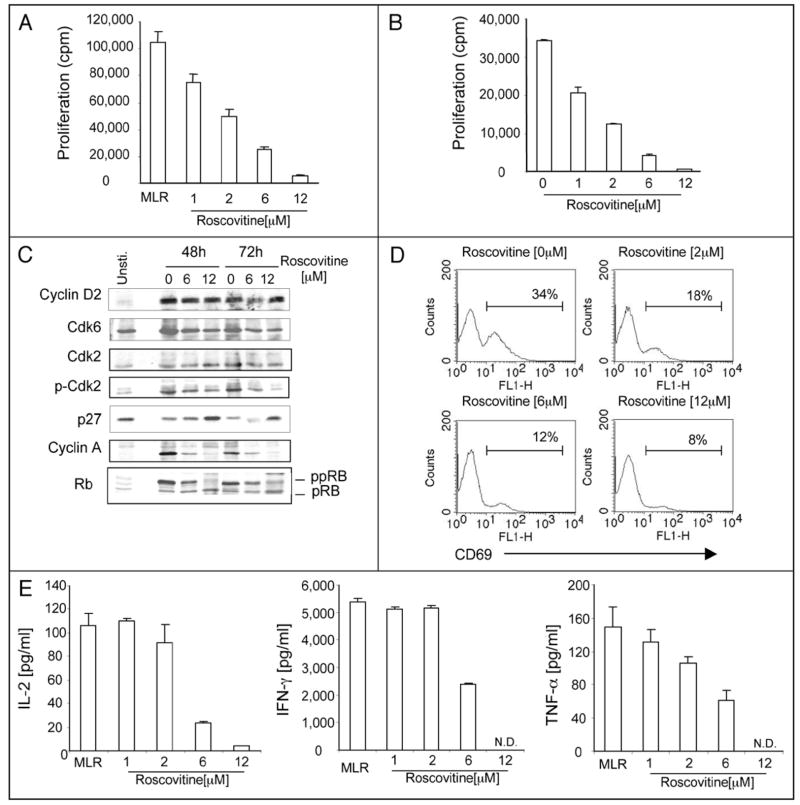Figure 1.
Roscovitine inhibits expansion and effector function of T cells in response to antigen stimulation. Purified T cells were cultured with irradiated allogeneic splenocytes (A and C–E) or with anti-CD3 and antiCD-28 antibodies (B) in the absence or the presence of titrated dose of roscovitine or vehicle control. Proliferative capacity was assessed by incorporation of [3H] thymidine at day 3 of the culture (A and B). Results are expressed as mean ± standard deviation (n = 3) and are representative of four independent experiments. (C) Cell lysates were prepared at the indicated time intervals and after SDS-PAGE expression of cell cycle regulators was analyzed by immunoblot with indicated antibodies. Results are representative of three independent experiments. (D) Cells were harvested at day 3 of the culture and surface expression of CD69 was analyzed on gated T lymphocytes by flow cytometry. Similar pattern of results was obtained in three separate experiments. (E) Culture supernatants from experiments described in (A) were collected on day 2 (IL-2, IFNγ) or day 3 (TNFα) of culture and concentration of cytokines was measured by ELISA. 0 μM of roscovitine stands for vehicle (DMSO) alone.

